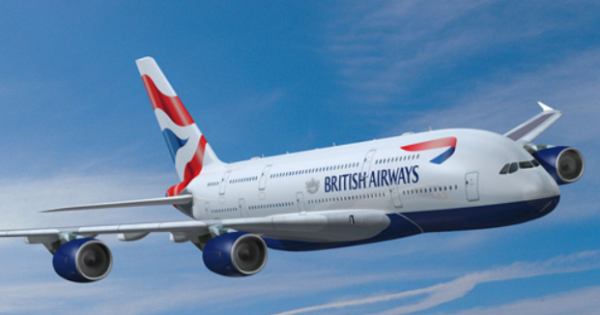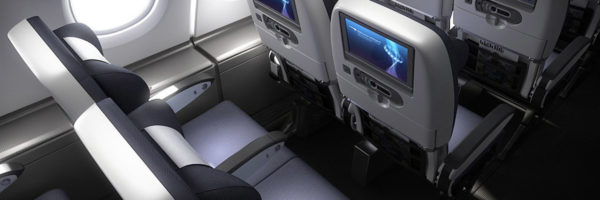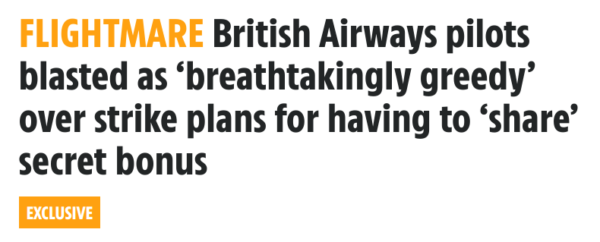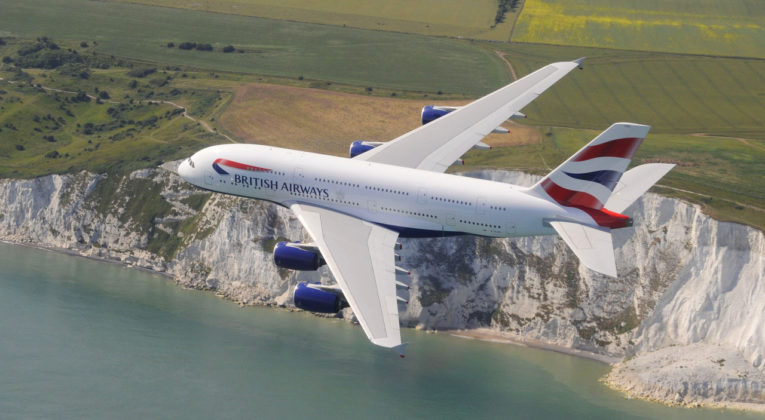Some links to products and partners on this website will earn an affiliate commission.
Is anyone else finding British Airways’ strategy for dealing with proposed strike action by its pilots really hard to understand?

Regardless of the detailed rights and wrongs on either side of the dispute, the fundamental issue that BA needs to deal with is that 93% of eligible BALPA (the pilot’s union) members voted for industrial action on a turnout of 90%.
However you cut it, there is clearly a real strength of feeling among pilots that what has been offered so far is not adequate. Whether BA management believes that feeling is fair or not is irrelevant. The situation simply is what it is – and has to be dealt with.
One possible way forward would be to maintain a firm line that the proposed deal won’t be significantly changed, regardless of how many strikes there are, or how much those strikes cost the airline. Given the level of devastation that the pilots could inflict though, that line simply wouldn’t be credible.
The only other path forward is some sort of negotiation.
If you must negotiate with people who are vital stakeholders and who cannot realistically be got rid of, there’s very little point in taking a negative approach. Regardless of how things are eventually settled (and they will be settled in the end), you are still going to have to work with, and rely on, the people you were negotiating with. In the years ahead, you want those people to be positive and aligned with the company strategy. You want them to feel valued and engaged.
The alternative is moody employees with bad morale, who mistrust management and lack any sense of loyalty or common purpose – not the sort of pilots most passengers want flying them.
Therefore, even if BA doesn’t want to give an inch as regards pay, it’s still hugely important to conduct internal negotiations in as friendly and collegiate a way as possible. Ensure the other ‘side’ feels listened to, suggest alternative improvements to conditions that aren’t directly pay-related, etc.
Fundamentally, the aim should be to de-escalate – it’s a difference of opinion between colleagues, not a civil war.

In this particular situation, I can’t see any benefit whatsoever in making the pilots angrier than they were already. All it can achieve is to make the eventual cost of settling higher than it otherwise might be – at the same time as making the benefits of settling lower, because morale is influenced by more than just money.
This seems pretty obvious stuff. But, BA management appears to have adopted the exact opposite strategy. Let’s take a quick look at a few of the steps they’ve taken so far:
- Seeking an injunction at the High Court against the strike based on a potential technicality. BA lost. When you’re dealing with 93% of a 90% turnout, attempting to hide behind technicalities is just presenting a red rag to a bull.
- Appealing against the decision of the High Court. BA lost again. Why fan the flames once when you can do it twice, I suppose…
- Putting out misleading official statements to customers like the following, “We understand how precious your summer holidays are and we are very sorry BALPA has threatened to call this strike action. We will continue to exhaust every possible means to avoid it and we urge BALPA to return to talks as soon as possible”. This was released at a time when BALPA had (temporarily) agreed to hold back from announcing strike dates, and after both sides had agreed to continue negotiations.
Perhaps the most puzzling aspect of BA’s strategy though, has been its media/public relations. There have been numerous stories in national newspapers over the last month based on information provided by unnamed ‘British Airways sources’ that have attempted to paint the pilots as greedy and unreasonable, and the strike action as somehow illegitimate.
For example, The Sun went with the following (characteristically) balanced and nuanced headline:

The Telegraph was a little more restrained:

Public statements from BA have taken a similar line:
“It is completely unacceptable that BALPA is destroying the travel plans of tens of thousands of our customers with this unjustifiable strike action. BALPA has given us notice that they will strike on September 9th, 10th and 27th. We are extremely sorry that after many months of negotiations, based on a very fair offer, BALPA has decided on this reckless course of action.”
The thing is, it doesn’t matter at all whether the strikes are ‘objectively’ reasonable or not. Even if BA pilots really were the greediest and most unreasonable people on the planet (which I very, very much doubt), it would still be stupid for the airline to claim it publicly, or to transparently spin that line to the press.
There are (at least!) three reasons why it would be counterproductive to do so:
- In the short term, angering the pilots makes a deal take longer and cost more.
- In the longer term, once a settlement has been agreed, pilots will still lack trust in management and be less wiling to go the extra mile. That also costs money.
- BA management seems to think that attempting to create a public dividing line between the pilots and the airline, and placing the blame for disruption entirely on the pilots side of that line, might help insulate the company from public anger over cancellations. The fact is though, most people don’t see a difference between a company and vital employees – British Airways and British Airways pilots are more or less the same thing as far as the public is concerned. The ‘British Airways sources’ spitting bile to the papers about their own pilots, are actively damaging BA’s reputation. It’s bizarre.
Bottom line
When it is inevitable that a settlement will eventually be reached, creating further bad blood with indispensable employees is a huge own goal. It costs more in legal fees, risks expensive strikes, makes settling more difficult (and expensive), and poisons morale in the longer term too.
In addition, by attempting to paint its pilots as greedy and unreasonable, the airline is damaging its own brand. Customers need to trust that the people flying them, and in whose hands they place their lives when they board an aircraft, are deeply professional. Any suggestion of conflict, distraction and chaos is corrosive to that vital trust.
Who do you think is most to blame for the planned strike action – BA’s management or the pilots?




I am not sure how the pilots could be blamed. I thought the pilots agreed for a freeze of their salaries a few years ago to help the company and after a massive profit last year, BA are screwing the pilots over, who are being very reasonable for what they are asking.
And no, I am not a pilot.
Totally agree with david S above. Your article was also very fair and balanced.
BA have gone from a first class international airline into a laughing stock of extraordinarily bad , VERY unprofessional management from tha aggressive, macho CEO downwards. As for their HR department – they could not manage their way out of a paper bag.
I have EVERY sympathy with the pilots – once again a management undertaking has been reneged on.
Joe,
Good article. As you say, the rights and wrongs of the underlying case are unlikely to be available for us to rake over and make an informed decision, but when such a high percentage of the target group vote and vote so convincingly, then it must signal a serious concern for BA.
To then decide to undertake a communications offensive to marginalise circa 90% (depending on how you view the voting figures) of your workforce would seem a rather kamikaze style of negotiation. The question is how do BA go forward now – Reagan was able to fire the Air traffic controllers, back in 1981….not sure Mr Cruz has quite the same clout, unless he intends to re-hire all of his old, retired, pilots.
I travel with BA on a regular basis, so this will be a pain to me, but I can’t help feeling sympathy for the pilots and I just worry it isn’t going to have a happy ending….
M
Re BA pilots and your comments.
What you left out was that BA had negotiated with all the unions not just BALPA. All accepted the deal except BALPA ( though some reports say their man did accept it).
Therefore probably 90% (guess) have agreed the deal. This makes it difficult for BA to give the pilots extra .
It’s a fair point and probably something I should have addressed, but the article was getting a bit long so I cut it. 🙂
BA is naturally very keen to spin the line that all the other unions have accepted the deal, but there are a few good reasons why comparing pilots to other employees doesn’t really work:
1) To be blunt, it’s simply easier to replace other types of employees, so they have less leverage than the pilots. If they had more leverage, the other employees may well have demanded more too – which isn’t necessarily a bad or unreasonable thing given current profitability (as long as it was done in a sustainable way – eg. linked to profits).
2) History – the pilots made substantial financial sacrifices in the past to help the airline during tougher times. Now that things are going well again, you can see why they might think it’s time for the airline to make good.
3) Fundamentally, what one group of employees agrees to has no logical bearing on whether it makes sense for another group of employees to agree to the same. The situation, history, details and priorities are always going to be different for each group.
When you consider the widespread strength of feeling amongst the pilots here (not exactly a group well-known for their striking!), it’s clear that there are specific issues at play for the pilots that don’t seem to have exercised the other groups in the same way.
Regardless of any of that, the dispute is simply an issue that needs to be solved. BA needs to (and will eventually) bring the pilots back on board one way or another – and their current strategy seems to make achieving that harder and more expensive, rather than easier.
You are correct other unions did agree to the deal. However when the pilotys agreed to a pay cut a few years ago and salry freeze I believe none of the other unions did like wise. Of course as usual BA management said do this for us now andd it will be “jam tomorrow”. Well tomorrow never came despite huge profits!!
Crucially though, the other unions included in their agreement with BA that if the pilots were awarded a better deal, it would be given to the other unions too. Shrewd negotiating as they already knew the strength of feeling among pilots based on the broken promises from ten years ago through to today. The other unions can happily reap the rewards of the pilots’ actions without the risk of striking themselves.
There is a huge disconnect between BA management and ALL employees – it’s just on this occasion the pilots are “taking one for the team” and I believe the vast majority of the other employees who “agreed to the pay deal on offer” support the, in their action,
Good article, couldn’t agree more. These things always, always end up further down the line with some sort of negotiated settlement.
Having said that all other parts of the airline have accepted a deal around the 11%. 11% of a pilots wage is an awful lot more than 11% of cabin crew or ground staff so the word “GREEDY” can’t really be overlooked.
What you didn’t mention is the (yet another) BA PR fiasco at the weekend, which came about as a direct result of this, and makes them look even more inept. Harming themselves even further.
E-mails were sent out telling customers flights were cancelled. Naturally chaos ensued when thousands of people could see their holiday plans being ruined, being bank holiday weekend and possibly not even realising their own stupidity there weren’t anything like the right number of people to deal with peoples queries. Amazingly some 18 hours later another e-mail comes out saying “oops sorry we cocked up it was all a mistake” like it was a typing error or something of a similar minor typo. Hours earlier on social media people were saying these were mistake e-mails
Some stories of people calling 40-50 times without joy. We held for an hour on the Sunday at 6am only to be cut off and then an hour and three quarters before getting through late afternoon.
If this hadn’t actually happened you almost couldn’t believe that BA could a. be so inept and then b. treat people with such contempt
Cheers!
Re the 11%, afaik, one of the issues the pilots have is that they want it to be RPI linked. Given the potential for economic turbulence in the next few months and years, that seems an incredibly sensible precaution – and one that the other unions should really have insisted on too. On greed more generally, I’m a big believer in the idea that when a business does well, the employees should share in that success; and equally when a business is struggling, employees should understand that and show some flexibility – which is, of course, what the pilots did previously.
As regards BA customer service, as someone who now goes into cold sweats as soon as I hear the first bar of Delibes’ Flower Duet, you have my sincere sympathies…
Nice topic..thanks
Joe, you say that “the pilots made substantial financial sacrifices in the past to help the airline during tougher times”. I’ve heard this repeated by a few pilots but none were able to actually detail the “sacrifices”. Could you do that for us please?
Back in 2009 they overwhelmingly supported an actual pay cut (not just a freeze) and reductions to their allowances: https://www.telegraph.co.uk/travel/travelnews/5818772/British-Airways-pilots-accept-pay-cut.html . Anecdotally, I’ve heard that was worth about £5k on average, though presumably it would have varied a fair bit for each pilot.
There has also been a range of other changes to things like the pensions scheme.
To be fair though, I don’t buy the BALPA line that what they were asking for was only worth £5 million more per year in total than the BA offer – so both ‘sides’ are definitely capable of spin.
Oh I thought it was something “substantial”. My understanding, from friends who work at BA, is that everyone took pain, in one form or another in 2009 and that almost half the pilots in BA today weren’t even working at the airline back then. Difficult to argue that you made “substantial sacrifices” if you weren’t working there? 11.5% seems like a very generous offer in the current climate.
The vast majority of employees voting to accept a pay cut (bear in mind this was on top of inflation, which meant the ‘real’ pay cut was more) is, unfortunately, quite extraordinary. Employees, management and shareholders working sensibly together for the the good of the business (and their mutual self/aligned interests) is surely something everyone wants to see more of. Employees will only make those kind of sacrifices though, if they can trust that they will be treated right when the good times are back.
11.5% over 3 years is hardly generous when a business is making the sort of money BA currently is. Depending on whether it’s RPI linked or not, it could quite easily end up being a tiny fraction of that amount in reality. Given the current economic uncertainties, it could even conceivably end up as a real terms loss.
From the outside at least, the obvious solution would seem to revolve around profit sharing of some description. That way, interests are aligned and it’s much less risky for the airline to commit to.
It really is impossible for any of us to understand the full situation from the outside though, so I return to the central point that the pilots are not exactly well-known for their militancy, but are overwhelmingly in favour of strike action. The only conclusion I can reach based on that, is that the offer is not particularly appealing.
The further point, is that from an industrial relations pov, it actually doesn’t even matter whether the pilots are being reasonable or not – the situation still needs to be solved regardless. I can’t see how BA’s actions so far have helped achieve reconciliation.
I respect the right to strike.
Passengers, must have rights as well, this is not like going on public or buying a car when clear strike dates are known as far as I’m aware, correct me if I’m wrong.
Living in Jersey, there is a finite capacity of commercial flights between Gatwick.
In the last few days I’ve seen Easy*** (the only other Jsy-Lgw-Jer carrier) cost go from £90 odd to £140 odd in the last 4 or 5 days, today = 2/9/19.
With BA saying flight on 27th September is likely to be cancelled, but currently today they have not.
This leaves the BA/BALPA customer/passenger in a very difficult position – will I fly or not on the 27th September?
Have negations restarted or is the BALPA head negatiotor still on holiday?
The longer I leave booking an alternate flight on the 27th September, the more it will cost!
I really don’t mind people going on strike, what I do mind is not knowing for sure!!!
Absolutely right Geoff – and I’m pleased to let you know that you do indeed have those rights! (Although, BA is reportedly making things awkward for some customers). Basically, BA is supposed to let you pick one of the following 3 options: “reimbursement for cancelled flights, alternate travel arrangements under comparable conditions at the earliest opportunity which includes flights on other airlines, or a new flight at a later date at the passenger’s convenience”.
The difficult bit will be getting BA to rebook you on Easyjet, because although their obligation to do so is pretty clear, they don’t like booking passengers on competitors.
The latest advice from the Civil Aviation Authority can be found here (and is what I quoted from above): https://www.caa.co.uk/News/UK-Civil-Aviation-Authority-statement-on-British-Airways-flight-cancellations/
Good luck! – be prepared to have to make your case quite forcefully (though always calmly and politely, of course 😉 )
Hopefully, BA and BALPA can reach an agreement before the 27th, but I would plan for the worst.
As I understand it the other BA workforce’s agreed the 11.5% settlement with the proviso that if the pilots got more then the airline would match it